Related Research Articles

Old Wives for New is a 1918 American silent drama film directed by Cecil B. DeMille. It is based on the 1908 novel of the same title by David Graham Phillips.
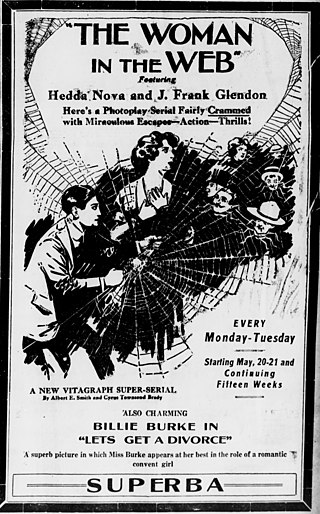
The Woman in the Web is a 1918 American drama film serial directed by Paul Hurst and David Smith. It was the 9th of 17 serials released by The Vitagraph Company of America. This World War I period serial about a Russian princess and the overthrow of the Tsar introduced the concept of the Red Menace to serials. The serial is now considered to be a lost film.

The Mystery Ship is a 1917 American adventure film serial directed by Harry Harvey and Henry MacRae. The film is considered to be lost.

The Brass Bullet is a 1918 American silent adventure film serial directed by Ben F. Wilson. It is now considered to be a lost film.

The Bull's Eye is a 1917 American film serial directed by James W. Horne. It is now considered to be a lost film.
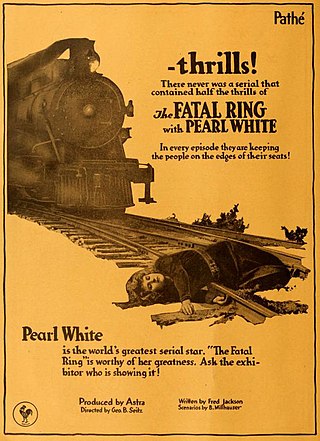
The Fatal Ring is a 1917 American action film serial directed by George B. Seitz. Silentera.com reports that the UCLA Film and Television Archive may have a complete print. A deteriorating fragment roll containing a scene is discovered in France by Australian filmmaker Robert Hoskins in 2021 who then scanned it and uploaded it to his YouTube channel.
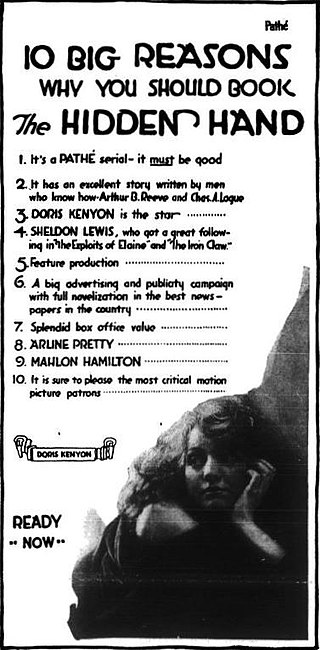
The Hidden Hand is a 1917 American film serial directed by James Vincent. This is a lost serial.

The Seven Pearls is a 1917 American silent action film serial directed by Louis J. Gasnier and Donald MacKenzie. Fragments are held by the Library of Congress.
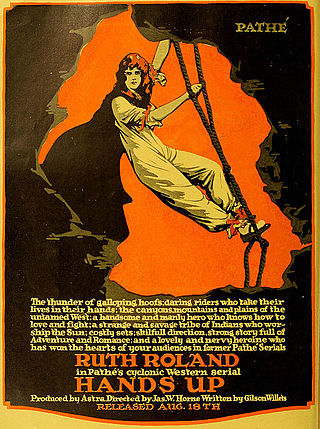
Hands Up is a lost 1918 American adventure film serial directed by Louis J. Gasnier and James W. Horne. The serial was Ruth Roland's breakthrough role.

The House of Hate is a 1918 American film serial directed by George B. Seitz, produced when many early film studios in America's first motion picture industry were based in Fort Lee, New Jersey.

The Legion of Death is a 1918 American silent drama film directed by Tod Browning, and released by Metro Pictures Corporation.

Which Woman? is a 1918 American silent drama film directed by Tod Browning and Harry A. Pollard. The film stars Ella Hall as a reluctant bride and Priscilla Dean as an adventuress and leader of a gang of thieves. The story was remade in 1923 as Nobody's Bride.

The Secret of the Storm Country was a 1917 American silent drama film directed by Charles Miller and starring Norma Talmadge. The film is described as not a direct sequel but a "continuation" of the 1914 film Tess of the Storm Country, starring Mary Pickford. The film is now considered lost.
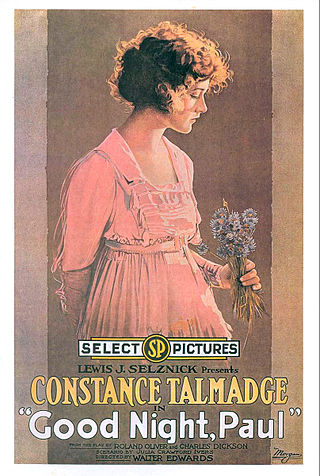
Good Night, Paul is a 1918 American silent comedy romance film directed by Walter Edwards. It was based on a successful stage play with book and lyrics by Roland Oliver and Charles Dickson and music by Harry B. Olsen. The film was produced by Lewis J. Selznick's Select Pictures Corporation.

The Love That Lives is a 1917 American silent drama film produced by Famous Players Film Company and distributed through Paramount Pictures. The film stars Pauline Frederick and was directed by Robert G. Vignola. The film is based on the story "Flames of Sacrifice", by Scudder Middleton.
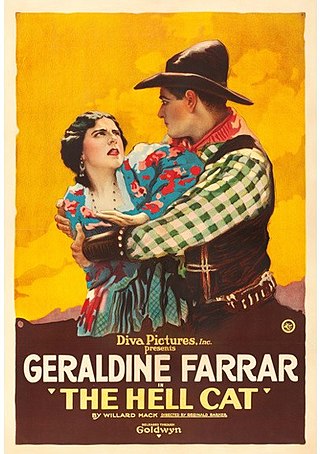
The Hell Cat is a 1918 American silent Western film produced and distributed by Goldwyn Pictures. Reginald Barker directed and Geraldine Farrar starred. It is not known whether the film currently survives.

The Make-Believe Wife is a lost 1918 American silent comedy film starring Billie Burke and directed by John S. Robertson. Based on an original story for the screen, it was produced by Famous Players–Lasky and distributed by Paramount Pictures.

The World for Sale is a 1918 American silent drama film directed by J. Stuart Blackton and starring Conway Tearle, Ann Little, W.W. Bitner, Norbert Wicki, Crazy Thunder, and E.L. Fernandez. It is based on the 1916 novel The World For Sale by Gilbert Parker. The film was released on January 21, 1918, by Paramount Pictures. It is not known whether the film currently survives, and it may be a lost film.
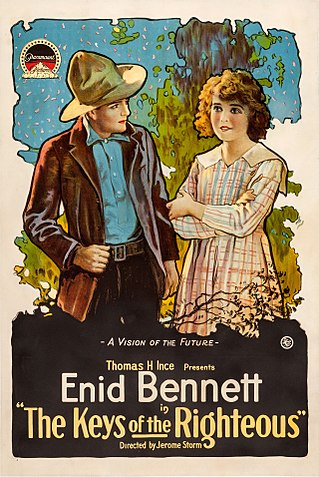
Keys of the Righteous is a surviving 1918 American silent drama film directed by Jerome Storm and written by C. Gardner Sullivan. The film stars Enid Bennett, Earle Rodney, George Nichols, Josef Swickard, Karl Formes, and Gertrude Claire. The film was released on February 18, 1918, by Paramount Pictures.

New York is a 1916 American silent comedy drama film directed by George Fitzmaurice and starring Florence Reed. It was adapted by Ouida Bergère from a 1910 William J. Hurlbut play of the same title. The film was distributed by the Pathé Exchange company.
References
- ↑ Ankerich, Michael G. (2012). Mae Murray: The Girl with the Bee-Stung Lips. University Press of Kentucky. p. 326. ISBN 978-0-813-14038-4.
- ↑ Progressive Silent Film List: The Bride's Awakening at silentera.com
- ↑ "Reviews: The Bride's Awakening". Exhibitors Herald. 6 (21). New York City: Exhibitors Herald Company: 28. May 18, 1918.
- ↑ "Official Cut-Outs by the Chicago Board of Censors". Exhibitors Herald. 6 (22). New York City: Exhibitors Herald Company: 30. May 25, 1918.
- ↑ "Official Cut-Outs by the Chicago Board of Censors". Exhibitors Herald. 7 (3). New York City: Exhibitors Herald Company: 31. July 13, 1918.